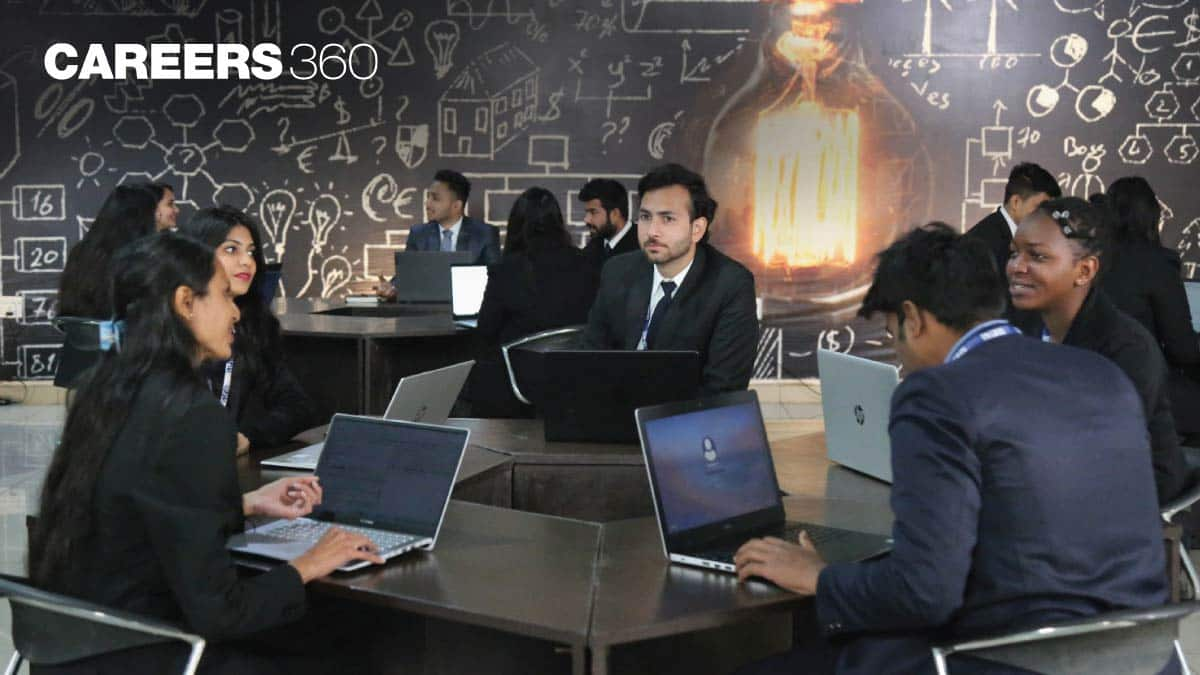Lovely Professional University offers a wide range of top courses across engineering, management, sciences, arts, and professional studies, making it suitable for students with different career goals. Some of the most popular and in-demand programs include B.Tech (especially CSE, AI & ML, Data Science, Mechanical, Civil, and EEE), MBA, BBA,
LPU Announced Admissions for Advanced Tech Programs in AI, Robotics & Data Science for Future-Ready Graduates
- LPU introduced specialized B.Tech. Computer Science programs in Robotics & AI, Applied AI, AI & ML, and AI & Data Analytics in collaboration with AI leader Quantiphi.

Jalandhar - As industries worldwide undergo rapid digital transformation, the demand for highly skilled professionals in fields like Artificial Intelligence (AI), Robotics, and Machine Learning (ML) has reached unprecedented levels. In alignment with this demand, Lovely Professional University (LPU) has announced the admissions for its innovative programs, designed to equip students with the knowledge and hands-on skills needed to thrive in the digital age.
LPU’s new offerings include specialized B.Tech. degrees in Computer Science with focus areas such as Robotics and AI, Applied AI, Artificial Intelligence and Machine Learning, and Artificial Intelligence and Data Analytics, the latter in collaboration with global AI leader Quantiphi. At the postgraduate level, LPU introduces advanced MBA programs in Data Science and Artificial Intelligence, as well as Fintech and AI, combining core management education with deep technological expertise.
Also See: Lovely Professional University Admissions
These innovative programs align with LPU’s "EduRevolution" initiative – a transformative approach to education where learning is gamified, students enjoy greater autonomy in choosing how and where they study, and skill-building takes precedence over traditional rote learning. In an era where adaptability and practical expertise are paramount, this shift represents a crucial evolution in higher education.
“At LPU, our mission is to stay ahead of the curve and produce graduates who don’t just adapt to the future but actively shape and lead it,” said Dr. Ashok Kumar Mittal, Member of Parliament (Rajya Sabha) and Founder Chancellor of LPU. “These advanced programs reflect the evolving dynamics of the global job market, where AI, data analytics, and robotics are no longer optional – they are essential.”
High-tech labs and an industry-aligned curriculum, designed to keep pace with the latest developments in technology, support LPU’s advanced programs. This approach is already producing strong results, with students securing top-tier placements. Recently two LPU graduates - Sri Vishnu and Betireddy Naga Vamsi Reddy, from the B.Tech. Robotics and Automation program, received record-breaking offers of ₹2.5 crore and ₹1.03 crore respectively from a leading AI robotics firm. Their success reflects the quality of education at LPU and the university’s focus on equipping students with advanced knowledge for roles in fast-evolving tech domains.
With the global fintech market projected to reach USD 1.5 trillion by 2030, LPU’s MBA programs in Data Science and Artificial Intelligence, as well as Fintech and AI, are strategically designed to bridge the gap between business and technology. These programs empower students to develop intelligent systems, drive digital finance innovation, and lead AI-powered strategies from day one. Attracting students from across India and more than 50 countries, LPU has become a top destination for talent and innovation. Its strong emphasis on global collaborations, experiential learning, and academic excellence positions the university as a launchpad for the next generation of tech-savvy leaders. Admissions are now open. Interested students can apply through the official university website.
Disclaimer: This article has been published as a marketing initiative between Careers360 and Lovely Professional University.
List of Related colleges
Questions related to LPU Jalandhar
On Question asked by student community
Hi, you can apply to Lovely Professional University (LPU) for B.Tech CSE with your JEE Main score. However, admission will be granted based on the fulfillment of other eligibility criteria and seat availability.
You should also ensure that you meet the minimum academic requirements specified by the university. It is
Please let me know which course you are planning to pursue at IPU?
This will help clarify exactly what programme you need to pursue before sharing syllabus or exam details.
Lovely Professional University conducts LPUNEST (LPU National Entrance and Scholarship Test) in multiple phases every year, generally starting from January and continuing till April or May. The exam is conducted in different slots across phases, and students can choose convenient timings depending on availability. Check for more details: https://engineering.careers360.com/articles/lpunest-scholarship-details-for-btech
Hello Aspirant,
Congratulations! You have multiple admission options!! Here is a short comparison to help you decide:
- SRM Ramapuram : Good brand value for placement opportunities - placement is the most positive area for the university. Ramapuram is a smaller campus and typically, has more of an industry focus compared
Applications for Admissions are open.
Among top 100 Universities Globally in the Times Higher Education (THE) Interdisciplinary Science Rankings 2026
Amrita University B.Tech 2026
ApplyRecognized as Institute of Eminence by Govt. of India | NAAC ‘A++’ Grade | Upto 75% Scholarships
Amity University-Noida M.Tech Admissions 2026
ApplyAmong top 100 Universities Globally in the Times Higher Education (THE) Interdisciplinary Science Rankings 2026
Vignan's Deemed to be University B.Tech Admissions 2026
Apply70th University Ranked by NIRF | 80th Engineering Rank by NIRF | Accredited by NBA and NAAC A+
UPES B.Tech Admissions 2026
ApplyLast Date to Apply: 26th March | Ranked #43 among Engineering colleges in India by NIRF | Highest Package 1.3 CR , 100% Placements
Victoria University, Delhi NCR
ApplyApply for UG & PG programs from Victoria University, Delhi NCR Campus
